How to Choose the Right CRM for Your Small Business Needs?

The right Customer Relationship Management(CRM) software can make or break a small business. This may seem like a bold statement, but the truth is that an effective CRM system can significantly enhance your customer relationships and streamline your operations in no time, while a poorly chosen CRM can lead to wasted resources and missed opportunities. So, the million-dollar question is – how to select a CRM for a small business? It’s not easy, as the market is already inundated with hundreds of CRMs, each claiming to be the best for your business. To help you make the right decision, we have come up with this guide where we take you through some handy tips to identify the perfect CRM, plus some mistakes to avoid. Why does your small business need CRM software? If you are still wondering whether your business needs a CRM or not, here are five compelling reasons that will convince you – Efficient Resource Management Small and medium sized businesses often have limited resources. A CRM maximises the efficiency of your team by automating routine tasks, organising customer information, and streamlining sales processes. You and your employees can instead focus on more strategic activities, such as business development and customer engagement. Personalised Customer Interactions Small businesses thrive on building strong, personal relationships with their customers. A CRM system keeps detailed records of customer preferences, purchase history, and interactions, enabling you to tailor your communications to individual customers, thereby enhancing the personal touch. Actionable Insights for Growth Small businesses need to be agile and responsive to market changes. A CRM offers analytics and reporting tools that provide insights into your customer behaviour, sales trends, and campaign performance. By leveraging this data, you can make informed decisions, identify new opportunities, and dynamically adapt your strategies to drive growth. Better Customer Retention and Loyalty Retaining customers is often more cost-effective than acquiring new ones. It becomes even more important for a small business that has limited budget for marketing. A CRM helps you stay connected with your customers through timely follow-ups and personalised marketing. This consistent engagement can lead to higher customer satisfaction and long-term loyalty. Tips for Choosing a CRM for Small Business Here are some handy tips to identify the best CRM for small businesses. (We recently published a blog comparing two of the most popular CRM tools – Salesforce and Hubspot) 1) Always set a budget Determine how much you are willing to spend on a CRM. A good CRM for a small business might come in various price ranges, from free options to premium solutions with advanced features. Keep in mind the total cost of ownership, including setup fees, training, and ongoing subscription costs. 2) Prioritise ease of use In a small business, every team member has to wear multiple hats. This means the CRM you select might be used by even those people who have never used one before. So, always choose a CRM that is intuitive and beginner-friendly. There should not be any learning curve, and your team should be able to use it without extensive training. 3) Look for customisation and flexibility Every small business is unique. What works for your competitor might not work for you. As a result, you must select a CRM that is adaptable to your specific needs. More importantly, it must be highly customisable and offer the ability to customisable fields, workflows, and dashboards. Salesforce is arguably one of the most customisable CRM for small business out there. You can tailor it to meet your precise requirements. 4) Ensure scalability Your small business is not going to remain small for long. In the blink of an eye, your customer count will multiply. Then, you should not be stuck with a CRM that cannot handle bigger loads. It is best to avoid the pitfalls of neglecting systems during your growth phase. In other words, your CRM should be able to grow with you. The CRM you select must be able to handle the increasing number of contacts, users, and data without compromising performance. 5) Explore the tool before making a purchase A good CRM software for small business will offer free trial and demos. Take advantage of it. Testing the CRM in a real-world scenario helps you evaluate its performance, usability, and suitability for your business. More importantly, it will help you find out how efficient customer support is so that you can get timely help during any issues. Mistakes to Avoid While Choosing a CRM for a Small Business While selecting the CRM, do not make the following mistakes – Not clearly defining your business needs and objectives. In other words, you do not have a clear understanding of what you want to achieve with the CRM. Selecting a CRM that doesn’t integrate well with your existing tools and software. This can create data silos and inefficiencies in your existing workflows. While budget considerations are important, focusing solely on cost can lead to choosing a subpar CRM. Instead of just looking for the cheapest option, consider the value the CRM provides in terms of features, support, and long-term benefits. Selecting a CRM that doesn’t have mobile accessibility. This can limit your team’s productivity and responsiveness. Ensure the CRM offers robust mobile apps or a responsive web design. Choosing a CRM without strong security measures or compliance with data privacy regulations can put your business at risk. Conclusion Choosing the right CRM for your small business is a decision that can significantly impact your growth. By carefully evaluating your business needs, following the tips highlighted in this post, and avoiding common pitfalls, you can find the best CRM for the small business you own. Our recommendation is Salesforce as it supports your future growth, helping your small business thrive in a competitive market. We are Brysa, the UK’s leading Salesforce expert with strong expertise in the implementation and maintenance of Salesforce tools. To know more about how we can help set up Salesforce in your business, contact us
Why is Salesforce CRM the Perfect Partner for Growing Media and Publishing Businesses?

There was a time when media and publishing businesses relied heavily on traditional methods to manage their customer relationships and operations. It included: Physical paperwork, spreadsheets, and rudimentary databases to manage content and customer data. Communication with customers and within departments was often conducted via emails, phone calls, and face-to-face meetings. Sales and marketing efforts were often disjointed, with limited visibility into customer interactions and preferences. All of these fragmented and inefficient approaches slowed down their day-to-day operations and hindered the ability to provide a personalised and engaging experience to customers. Smarter and successful publishing businesses quickly switched to Salesforce CRM to meet the demands of the fast-paced industry. In this article, we will understand why Salesforce CRM is the perfect partner for growing media and publishing businesses. But first, some basics. What is a CRM? A CRM (Customer Relationship Management) is a specialised system designed for media companies to manage interactions with their audience, clients, and advertisers. It helps these companies track and analyse customer data, manage sales and marketing campaigns, and improve customer engagement. The market is flooded with a myriad of tools, but the most popular CRM for media and publishing businesses is Salesforce because of its rich feature set tailored to the needs of the industry and the ability to customise the software to the precise needs of the business. What does a good CRM system promise? Salesforce CRM offers the following benefits: – 1) Data Unification Salesforce promises complete data unification by consolidating customer information from various channels into a single, centralised database. This ensures all departments, from marketing to sales, content to editing, have access to up-to-date and accurate information, automatically improving cross-functional collaboration in publishing businesses. 2) Shifting Dependencies (People to Processes) By implementing standardised processes and workflows, Salesforce reduces reliance on individual employees’ expertise and actions. This shift from people to processes ensures that there are no hiccups in managing customer relationships, sales, and content distribution due to employees leaving the company. 3) Better Pipeline Planning Salesforce CRM offers a myriad of functionalities and features for better pipeline planning. As a result, you get clear visibility into sales stages, perform accurate forecasting, and measure key performance metrics for improved decision-making. Ultimately, media and publishing businesses become better equipped to identify sales bottlenecks and allocate resources strategically to drive conversions. 4) Laying a Foundation for Automation and AI Salesforce lays the groundwork for automation and AI in publishing businesses by streamlining routine tasks, such as data entry, subscription renewals, and follow-up reminders. For instance, Salesforce’s Einstein enables you to create and deploy assistive AI experiences natively within Salesforce. Your customers and employees can interact with Einstein and solve issues faster. 5) Meeting Growth Objectives Salesforce supports and helps in meeting the growth objectives of your business by enhancing your team’s acquisition, retention, and upselling efforts. With detailed audience insights and targeted marketing capabilities, media and publishing businesses like you can drive revenue growth and achieve strategic goals more quickly with Salesforce Avoiding “technical debt” with the right investment Technical debt, arising from shortcuts in software development, can lead to increased costs and reduced productivity. Due to lack of awareness, many small and medium-sized media and publishing businesses fall into this trap. Investing in Salesforce helps mitigate this by offering a scalable ecosystem with the following benefits: Salesforce’s cloud-based architecture allows for seamless integration, extensive customisation, and efficient performance, reducing the need for costly custom solutions. Its tools, like Process Builder and Flow, enable complex automation without code. Regular updates keep systems current, minimising the financial burden of maintaining outdated technology. Salesforce offers automated maintenance and monitoring tools, such as Salesforce Shield and Einstein Analytics, to ensure proactive issue resolution. They prevent technical debt that typically arises from neglected maintenance tasks and unaddressed bugs. The platform fosters continuous improvement through resources like Trailhead for training. This ensures that users are well-informed about the latest features, best practices, and efficient ways to use Salesforce, reducing the buildup of outdated practices and technical debt. How to assess CRM tools? To assess CRM tools, consider the following key factors: Functionality: Evaluate the core features such as contact management, sales automation, marketing integration, customer service, and analytics. Ensure the tool meets your specific business needs and can be customised to suit the publishing industry. Scalability: Check if the CRM can grow with your publishing business, handling increased data and users without compromising performance. Usability: Assess the user interface and ease of use. A user-friendly CRM will encourage adoption and maximise productivity within a short span. Integration: Ensure the CRM integrates seamlessly with your existing systems and tools, such as email, marketing automation, and ERP software. Support and Training: Consider the quality of customer support, training resources, and community forums available to help you and your team effectively use the CRM. Our recommendation Salesforce is one of the very few tools that checks all the above points. It is scalable, intuitive, and offers integrations with almost every known platform on this planet. However, we understand implementing Salesforce CRM is not easy, especially if you are new to the whole CRM space. And that’s where a Salesforce expert like Brysa steps in. We are the UK’s leading Salesforce consultant with rich experience in the implementation and maintenance of Salesforce services in the media and publishing industry. To start your Salesforce journey, contact us now.

